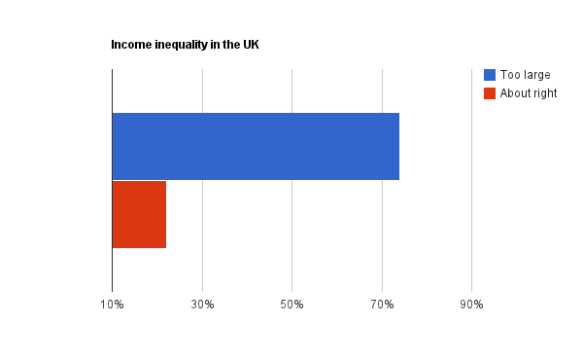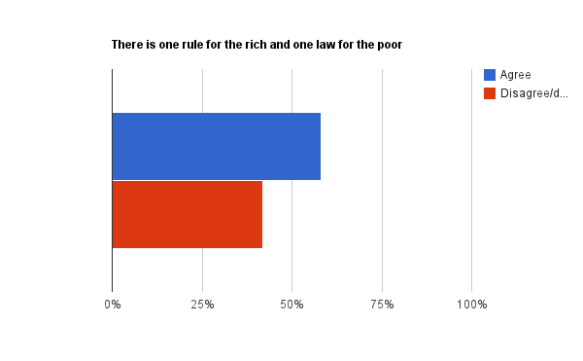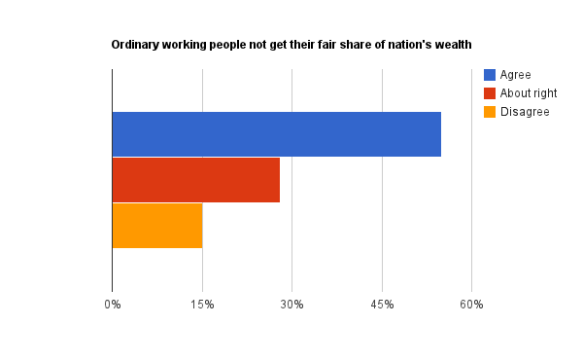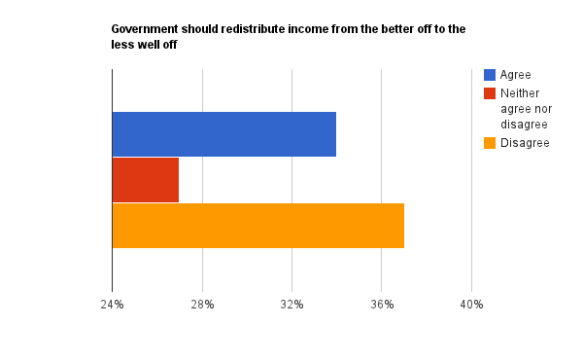Ed Miliband’s speech yesterday has attracted some comment, especially over his use of the term ‘predistribution’.
Putting debates about language to one side, this is an excellent approach to age old questions about income inequality and one which is in step with the British public’s views.
‘Predistribution’ means how wages are spread out before tax and benefits. Some societies (e.g. Japan) have more income equality than Britain or America while actually distributing less through the tax and benefits system. Wages are just more equal.
What do the public think about these questions?
People in England certainly think that there is too much income inequality.
They also think that the current system is rigged and that there is one rule for the rich and one for the poor.
And that ordinary workers do not get a fair share of the nation’s income.
However, there is little support for government to take a more active role in redistributing money (for example through the tax and benefits system).
What this means is that there is great potential for Labour to promote policies which will bring about greater income equality, without requiring redistribution of income through the tax and benefit system.
These could be policies around reforming the way pay levels are decided within companies, efforts to modernize the Trade Union movement or even efforts to make businesses less hierarchical.
The High Pay Commission have some interesting thoughts on this, as does Duncan Weldon at the TUC.
Whatever you want to call this theme and whatever policies come from it, it is clear that the public are firmly behind the idea of ‘predistribution’.
P.S. These numbers are taken from the British Social Attitudes Survey. I am indebited tothis blog post for inspiration for this article.








More from LabourList
Turning the page? Labour’s recovery in the polls show a path to 2029 victory
Restoration announce recommendations for NEC candidates
‘Factionalism at the top is weakening Labour – and handing a gift to Reform’